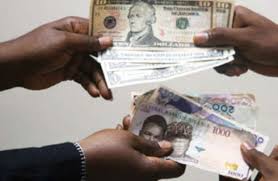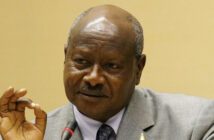The naira gained on the parallel market yesterday, following the refusal of commercial banks to accept cash deposits in dollars, a move to discourage speculation in the currency.
The naira traded at between 213 and 215 to a dollar in the parallel market in Lagos and Abuja, rebounding from 225 naira it hit on Friday. It was quoted at 240 a week ago. On the official interbank market, the naira traded at 199, near the central bank’s pegged rate of 197.
“Banks are rejecting dollar deposits … they are not able to transfer excess liquidity to their correspondent banks abroad, which is restricting importers from using domiciliary accounts,” said Aminu Gwadabe, president of Nigeria’s Bureau de Change association. The naira had weakened on the parallel market to as much as 242 to the dollar, on persistent dollar shortages. The central bank last month limited importers’ access to dollars on the official interbank market to buy a wide range of goods, in order to save its reserves.
After the restrictions, importers bought dollars on the unofficial market and deposited them in their bank accounts for transfers abroad, Gwadabe said. The restrictions have frustrated companies that need dollars for imports. The central bank has rejected the idea of loosening the curbs, saying it could not adopt an “indeterminate policy” of currency depreciation and that the naira was “appropriately priced” on the interbank market.
Gwadabe said there was excess liquidity of around $1 billion on the parallel market.




